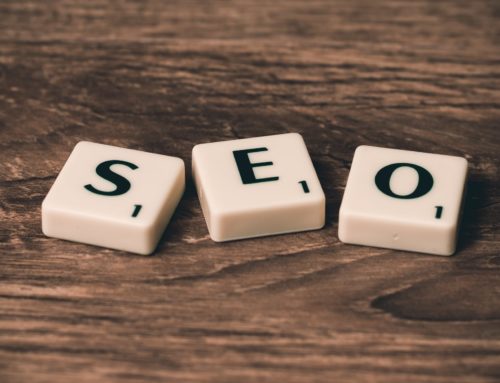Guest Post by Shakirah Dawud
I read an article in AdAge a couple of weeks ago that described the way the customer data market is set to change, due to new “personal data vault and brokerage” companies like Personal.com.
In pursuit of something called (by the author) a “Federated Identity” for all Internet users, these online services allow users to control the data they share with businesses about their spending and surfing habits without piling on usernames and passwords.
Sounds like exactly what we all need so far: less fear of sharing the wrong thing with the wrong entity or leaving a data trail behind when you think you’re anonymous.
But Personal.com takes their service a step further: not only can you control your data, you can sell it.
This begged the question: what data sells at what price, and to whom? According to the article, you “would decide what data to share, with whom, and in exchange for what.”
But when I visited Personal.com, that detail is explained this way:
For example, an online travel company could request access to your Next Vacation gem. If you grant access, the travel company might show you tour packages or destination ideas that match the data in your gem.
As compensation for giving the company permission to get to know you better, it might offer you a valuable discount on bookings or even pay you for your time.
Where in this transaction have the tables been turned, and power given to you, the data-owner?
The company has chosen which part of your information they want, and you don’t get to choose what you get in exchange.
That means you’re buying, and the company is selling.
The only thing differentiating this transaction from your run-of-the-mill newsletter or discount subscription? The illusion that you have better control over your information than you did if you handed over your email address.
And some companies could be more eager to get access to your “gems” because they get to pick the parts about you they’re interested in seeing, by dangling a reward in front of you that would otherwise be sent to your inbox. You’ll only give them access if you’re interested in their offer, so they know at the outset how primed you are to buy.
Because I don’t wear a tinfoil hat (at least, not while I’m here with Shonali), here: have a a cookie and let’s travel back into an alternate universe – the one we happen to live in.
Currently, all that precious data is being siphoned, organized, charted, and stored … free of charge to anyone you please (and some you don’t). Me? I’m not clicking anything I don’t want analyzed over it.
But I wrote this post for you. Would you be willing to “sell” your data? How much of it, at what price?
Image: aussie, courtesy of Flickr, CC 2.0.
 Shakirah Dawud is the writer and editor behind Deliberate Ink. Based in Maryland with roots in New York, she’s been crafting effective marketing copy as a writer and polishing many forms of prose as an editor since 2002. Clients in many fun sizes, industries, and locations reach her through the Web.
Shakirah Dawud is the writer and editor behind Deliberate Ink. Based in Maryland with roots in New York, she’s been crafting effective marketing copy as a writer and polishing many forms of prose as an editor since 2002. Clients in many fun sizes, industries, and locations reach her through the Web.








Great post @ShakirahDawud , but this is the kind of information that makes my head spin. Thank goodness for those of you who understand it! Cheers! Kaarina
@KDillabough It’s pretty murky, as you can see–lots of details I’m still unsure of from my brief little research. But if it’s the next big thing I’m sure it’ll get clearer whether it’s something truly beneficial or not.
This is really interesting and I have yet to hear about it so thank you for enlightening me. What I wonder is if you “sell” your data then can they give or sell it to anyone they wish? If companies do this, they could share together and soon they wouldn’t need to offer us deals. Just a thought.
@rachaelsedaI thought I saw the answer to your question on Personal.com, but when I checked again on the Privacy and Security page, I saw lots about what it won’t do with your data (no activity tracking, plenty of safeguards, not even any password storage–par for the course if you ask me), but nothing about what happens to it after you decide to “sell” it to one of the companies on there. Hm.
@rachaelsedaAh. Here it is:
“Companies always make you sign their long, unreadable legal agreements to use their sites or apps. We turned the tables and developed the Owner Data Agreement to provide you with your own legal protections. This simple, legally binding contract ensures that you own the data you choose to manage in Personal, not us or anyone else. And when you grant access to others — people or companies — it gives you the peace of mind that they acknowledge your ownership rights and will only use your data as intended.” http://www.personal.com/how-it-works/legal-protection
I guess a lawyer would know on what grounds to sue if you find a violation.
@ShakirahDawud Very cool, thank you!
I meant to read an article about Personal the other day and forgot about it until stumbling upon your guest post at Waxing UnLyrical. It seems that Personal gives the illusion of control. I have no plans of joining it, but, then again, I like trying to foil Facebook’s and Google’s attempt to get to know me. It’s a fun game, and it’s easy since I’m rather eclectic. I think the “carrot” would have to be some sort of grandiose thing (An all-expenses paid trip to Scotland, perhaps?) in order for me even to consider “selling” my data.
@Erin F.
It would have to be quite a carrot for me, too, Erin. I’m happy to give my email address and subsequently ignore subscriptions until I’m ready. Heh.